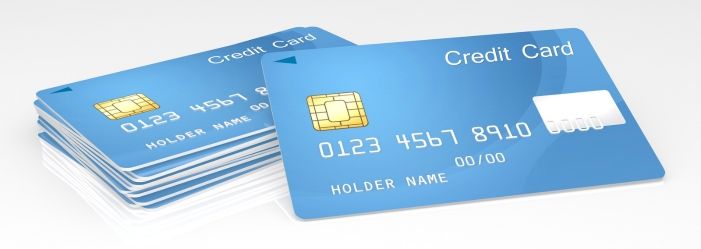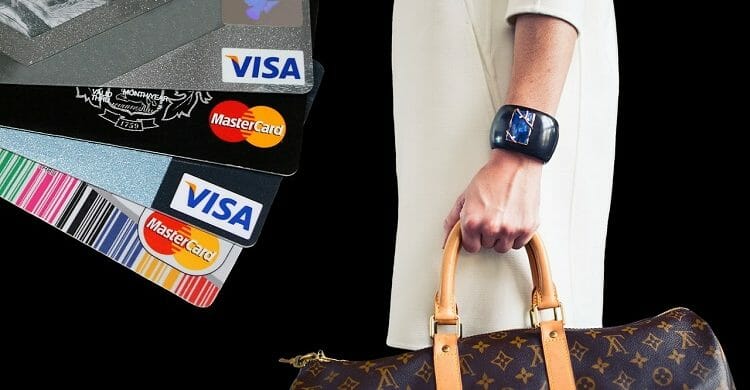Last Updated: February 05, 2024
Rewards vs. Risks of Credit Card Dependency

Disclaimer: We are not qualified legal or tax professionals and are not giving advice. Always speak with a qualified professional before making any legal or financial decisions.
Whipping out a credit card is very easy. Plus, you get rewards – cash back or airline miles – for every purchase. Using a credit card for everyday purposes seems like a win-win situation. But is it? We’ll look at the pros and cons of credit cards and everyday use and answer should I use my credit card for everything?
Why Use a Credit Card for Every Purchase?
There are appropriate reasons to use a credit card for everyday purchases. As we’ve mentioned before, you can maximize your rewards points, making your purchases work for you.
Responsible credit card use and repayment history can help your credit score. Most people don’t like to carry large amounts of cash, and a credit card is a great way around that. Another great reason to use a credit card is that you can accurately track every expenditure. You’ll also have purchase protection when you use your card.
Pacific Debt has helped thousands of people reduce their credit card debt.
Why You Should Not Use a Credit Card for Every Purchase
There are some very good reasons not to use credit cards for everyday purchases. It is very easy to overspend. After all, your credit card doesn’t feel like it has a limit and it takes almost no effort, unlike writing a check. Another concern is fraud. Every time you use that card, your run the risk of someone getting the number.
Some retailers don’t allow you to use a card for small purchases since their fees are more than your purchase. There are some merchants who don’t take plastic. And finally, the more you use your card the higher your balance. If you don’t pay it off, it becomes very expensive as it becomes a revolving balance.
Using a Credit Card for Everything
If you choose to use your card for everything, there are a few rules that will keep you from overspending. First, use one credit card. The more credit cards you use the more you will owe. Keeping it to one also keeps all your purchases on one card where you can track them more easily. Plus, you only have one to pay off.
Second, your credit limit needs to be large enough so you can cover your monthly spending. If yours isn’t, keep your credit clean and build up to a higher limit. The other option is to pay off your card several times a month.
Third, put up your debit card so you don’t deplete your account and can’t pay off your credit card. Fourth, always pay off your balance every month. Otherwise, that $2.95 daily latte is going to get really expensive as your charges will end up revolving.
Since 2002, we’ve settled over $200 million in debt for our clients. Contact us today to see how we can help.
Revolving Credit
When you are deciding whether or not to use a credit card every day, think about what happens if you don’t pay off your balance every month. Take our latte example. We will make a few assumptions based on average credit card rates.
- Our APR is 17.55%
- Minimum payments of 2% of the balance
If you buy 30 lattes at $2.95 a cup, in one month you’ll owe $88.50. If you don’t use the card for anything else, it takes six months to pay off those coffees if you’re only making the minimum payments. After you factor in interest, each cup costs you $3.11. Doesn’t seem too bad, does it?
But this example assumes that you make no additional charges on your card for 6 months and you only make the minimum payment each month. If you do make additional charges, it takes longer than 6 months to pay off the lattes, and the amount you effectively pay creeps up.
Let’s say you buy 30 lattes a month but only make minimum payments. At the end of the second month, you’ll owe $162.00. If you stop using the credit card at that point, it will take you almost a year to pay it off and you’ll pay $3.15 apiece for the lattes. As you can see, it takes a long time to pay off a card making minimum payments and while 20 cents a drink doesn’t seem like much, it adds up!
If you are using your card for everything, let’s say you charge $2000 a month on your card. You make a 2% minimum payment. The next month, you charge another $2000. You now owe $3960.
Repeat for one more month and you owe $5880, roughly the average amount of credit card debt for Americans.
If you stop using this credit card immediately, it will take you 31.5 years to pay it off at minimum payments and you will pay $13,610. You can see that using your credit card and not paying it off gets very expensive very quickly.
Credit Card Interest Rates: How High Can They Go?
Credit card interest rates vary, but the current national average APR is around 16% for all credit cards and 21% for credit cards from major issuers. That means if you carry a balance from month to month, you could end up paying quite a bit in interest charges.
For example, if you have a $5,000 balance on a card with a 21% APR and you only make the minimum 2% payment each month, it would take over 17 years to pay off the balance! In total, you would pay $7,764 in interest charges. That's $1,764 on top of the original $5,000 you spent.
As you can see, carrying balances can get very expensive due to compounding interest charges. That's why it's so important to pay your bill in full each month if possible. If you do carry a balance, try to pay down as much as you can above the minimum payment to pay it off quicker and reduce interest fees.
Credit Card Grace Periods
People who are very organized may be able to take advantage of grace periods, the 21 to 27 days that you are not charged interest by your credit card company. However, this only works if you are very organized and track those dates. Otherwise, you will get into trouble very quickly.
Should You or Shouldn’t You?
Covering all your monthly spending with a credit card can be a good thing if you have self-discipline and (we can’t repeat this enough) PAY OFF YOUR BALANCE EVERY MONTH. Don’t become one of the millions of Americans with credit card debt.
If you want to try this, start with a secured card and see if your self-control, income, and expenditures are all on the same page!
Pacific Debt has helped thousands of people reduce their debt. Since 2002, we’ve settled over $200 million in debt for our clients. Contact us today to see how we can help.
Using Your Credit Card Responsibly
Here are some tips to keep your credit card usage in check:
- Set up automatic payments for at least the minimum amount due. This ensures you never miss a payment that could impact your credit score.
- Review statements regularly to catch fraudulent charges early. Report any unauthorized charges to your card issuer right away.
- Use budgeting tools to track where your money is going each month. Seeing spending categorized can curb overspending.
- Pay down the highest interest cards first if carrying a balance. Focus extra payments on the card with the highest APR to pay it off quicker.
- Consolidate balances to a lower-rate card to save on interest fees if you have good credit. Compare balance transfer offers to find the best terms.
FAQs
Conclusion
Using a credit card for daily purchases can be convenient and earn rewards, but it requires responsible habits. Avoid overspending by carefully tracking expenditures and paying balances in full each month.
Set up automatic payments as a safety net, and take advantage of credit card benefits like fraud protections. If you do carry a balance, focus on paying down high-interest cards first to save on finance charges. Most importantly, understand your spending limits and use credit carefully as an intentional tool - not an unchecked spending free-for-all.
With discipline, reaping the rewards without debt is possible. Analyze your finances honestly to decide if everyday credit card reliance works for your situation.
Pacific Debt has helped thousands of people reduce their debt. Since 2002, we’ve settled over $200 million in debt for our clients. Contact us today to see how we can help.
*Disclaimer: Pacific Debt Relief explicitly states that it is not a credit repair organization, and its program does not aim to improve individuals' credit scores. The information provided here is intended solely for educational purposes, aiding consumers in making informed decisions regarding credit and debt matters. The content herein does not constitute legal or financial advice. Pacific Debt Relief strongly advises individuals to seek the counsel of qualified professionals before undertaking any legal or financial actions.
Reduce Your Credit Card Debt By Up to Half

BBB Reviews | 4.9/5.0 Rating









 Do Not Sell My Personal Information
Do Not Sell My Personal Information